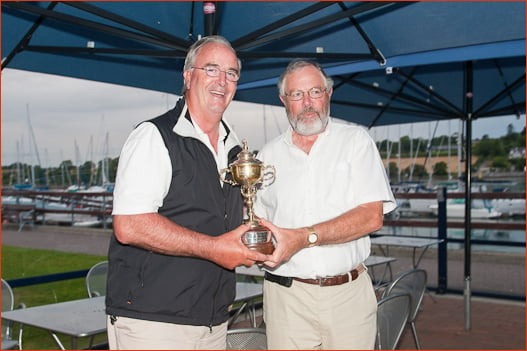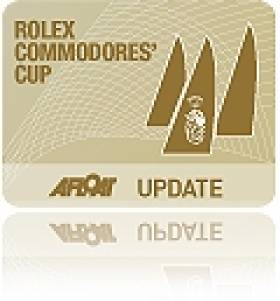Displaying items by tag: Anitx
Commodores' Cup Arrives in Ireland
The Rolex Commodores' Cup arrived back in Cork last night and winning team Ireland received a heroes welcome from the Royal Cork Yacht Club writes Claire Bateman.
In his welcome Admiral Paddy McGlade mentioned there were ten trophies for the event, eight of which were won by Team Ireland. One was for best British boat that obviously Ireland couldn't win, and the other was for best female crew category which they certainly couldn't win! When Team Leader Anthony O'Leary arrived he received a standing ovation and was joined by Andrew Creighton and his family.
Unfortunately marinerscove.ie skipper David Dwyer was still on his way home and could not be present but nonetheless marinerscove.ie was very much in the minds of all present.
In the Team Leader's speech Anthony made special mention of and paid tribute to Rob Davies of Roxy 6 and the hugely important part Roxy had played in the successful outcome.
He said Antix and marinerscove.ie had been around for some time but Roxy was a new build recently launched. He again expressed his gratitude for the unstinting and unswerving support so generously provided by Rob Davies any time it was requested for Roxy's campaign.
ICRA Commodore Barry Rose also spoke and gave a graphic description of the final race of the series and how well the Irish team coped with the conditions when all around them other boats were having major difficulties.
The formalities over, the Admiral rang the bell and the team members and their supporters enjoyed refreshments as they relived the seven days of the Rolex Commodores' Cup.

Job well done. Team Ireland Captain Anthony O'Leary is welcomed home by Royal Cork Admiral Paddy McGlade. Photo: Bob Bateman





























































